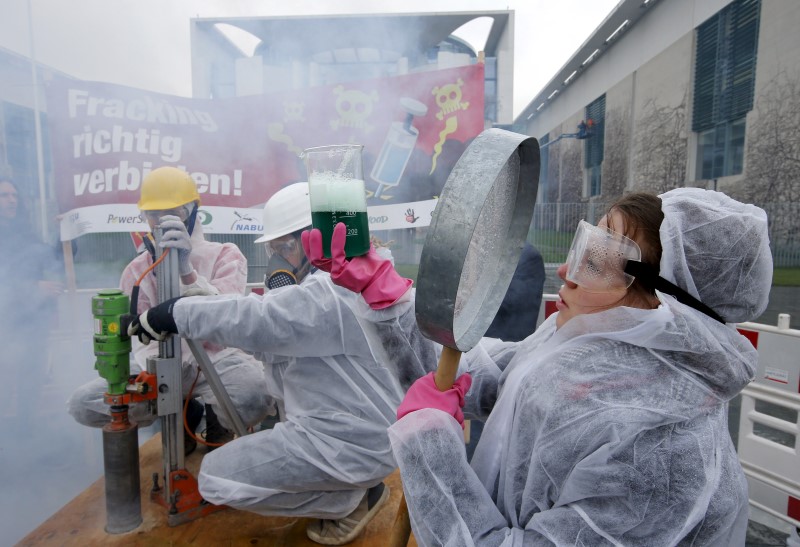BERLIN (Reuters) - Germany's coalition government agreed to ban fracking for shale gas indefinitely on Tuesday, after years of fractious talks over the issue, but environmental groups said the ban did not go far enough and vowed to fight the deal.
Test drilling will be allowed but only with the permission of the respective state government, officials said.
German industry is keen to keep the door open to fracking - which involves blasting chemicals and water into rocks to release trapped gas - arguing it could help lower energy costs, but opposition is strong in the country, where a powerful green lobby has warned about possible risks to drinking water.
If the law is approved by parliament, Germany will follow France, which has banned fracking, whereas Britain allows it subject to strict environmental and safety guidelines.
Germany was on the verge of a parliamentary vote on similar legislation to ban fracking a year ago, but the effort stalled amid disagreements between Chancellor Angela Merkel's conservative Christian Democrats (CDU) and the left Social Democrats (SPD).
The two parties agreed on Tuesday to an indefinite ban, but the compromise legislation calls for the German parliament to reassess whether the decision is still valid in 2021, said Thomas Oppermann, who heads the SPD's parliamentary group.
CDU officials confirmed that a compromise had been reached.
Friends of the Earth Germany (BUND) criticised the proposal and said that by setting a date for a fresh look, the coalition had essentially agreed to allow fracking in five years.
"The coalition's agreement on a fracking permission law is hair-raising. The law must be stopped and replaced with a true fracking ban," Hubert Weiger, who heads the environmental group, said in a statement.
Both parties were due to debate the legislative proposal in caucus meetings on Tuesday.
Further details of the compromise legislation were not immediately available.

Current German law permits unconventional fracking, but virtually no drilling permits have been approved.